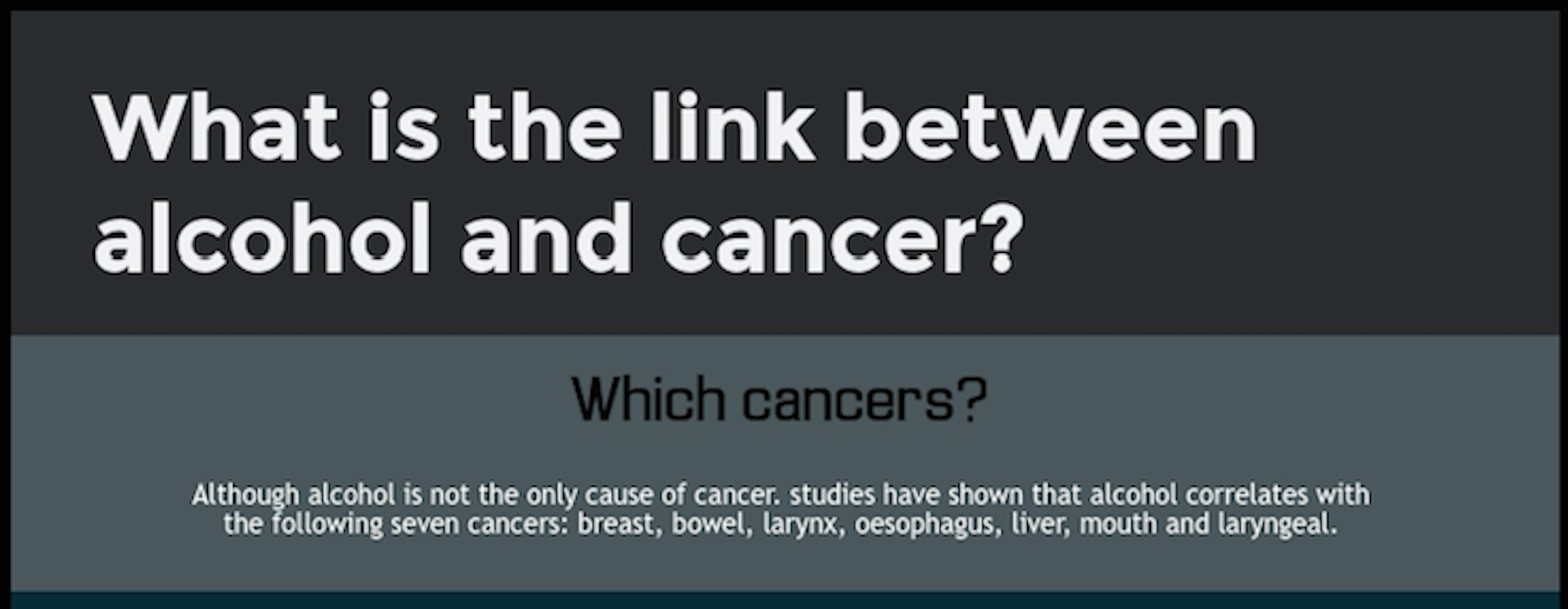
10 May Alcohol and cancer… cause and effect?

The stereotype of alcohol is no where near as bad as any other drugs whether legal or illegal. However, it is in fact the deadliest. Alcohol is more harmful than any other drugs including marijuana, cocaine and ecstasy. It causes more social harms, and psychological harms than any other drug, as it can result in anti-social behaviour and even extreme cases of suicide, and cancer. As well as being a massive strain on health services with admissions being so high and treatments being so expensive.
Cancer is a huge health problem worldwide, with over 14.1 million new cases in 2012 alone. Studies show that around 4% of all cancers are caused by alcohol consumption. The seven cancers which are most commonly associated with cancer are: bowel cancer, breast cancer, mouth cancer, liver cancer, oesophageal cancer (food pipe), pharyngeal cancer (voice box) and laryngeal cancer (upper throat). With bowel and breast cancer predominantly having a higher risk.
Research from the American Cancer Society estimated that in 2014, around 1,665,540 people were diagnosed with cancer in the United States of America alone, as well as 356,860 diagnosed cases in the United Kingdom.
Statistics have shown that 4 in 10 (42%) of cancer cases in the UK each year are linked to lifestyle factors including: smoking, alcohol consumption, diet, obesity, ultraviolet radiation and infections including HPV. Although it has been proven that even people who consume a low amount of alcohol are at the same risk at those who drink more, and even if you were to suddenly stop drinking alcohol, the risk would still remain.
An obvious trend in alcohol intake around the world is that Europeans consume a very high amount. This could be a result of multiple factors including the fact that they are major producers of many popular alcoholic beverages including vodka, wine and beer, making the produce a lot cheaper since it doesn’t have to be exported. Drinking is also a very popular social event for many europeans, with the nightlife scene including clubbing and bars, taking over £1.7 billion revenue each year. Another factor could be down to the colder climate in the northern hemisphere in which Europe is situated, alcohol can sometimes seem to give somewhat of a ‘warming’ feeling when a high amount is consumed. People in a colder climate may be more inclined to drink for this reason.
Studies researching the correlation between cancer and alcohol intake has found that breast cancer has a strong cause and effect relationship with cancer. It is a belief that alcohol can strengthen oestrogen levels which feed some cases of breast cancer, as well as damaging the DNA in breast cells which can cause them to have abnormal development, resulting in cancerous cells.
People are forever becoming more aware of major health risks, aiming to prevent deadly diseases and cancer. With the whole month of January being dedicated to a sober life, also known as ‘Dry January’, it is obvious that people are willing to make such changes if it will result in a healthier lifestyle.

